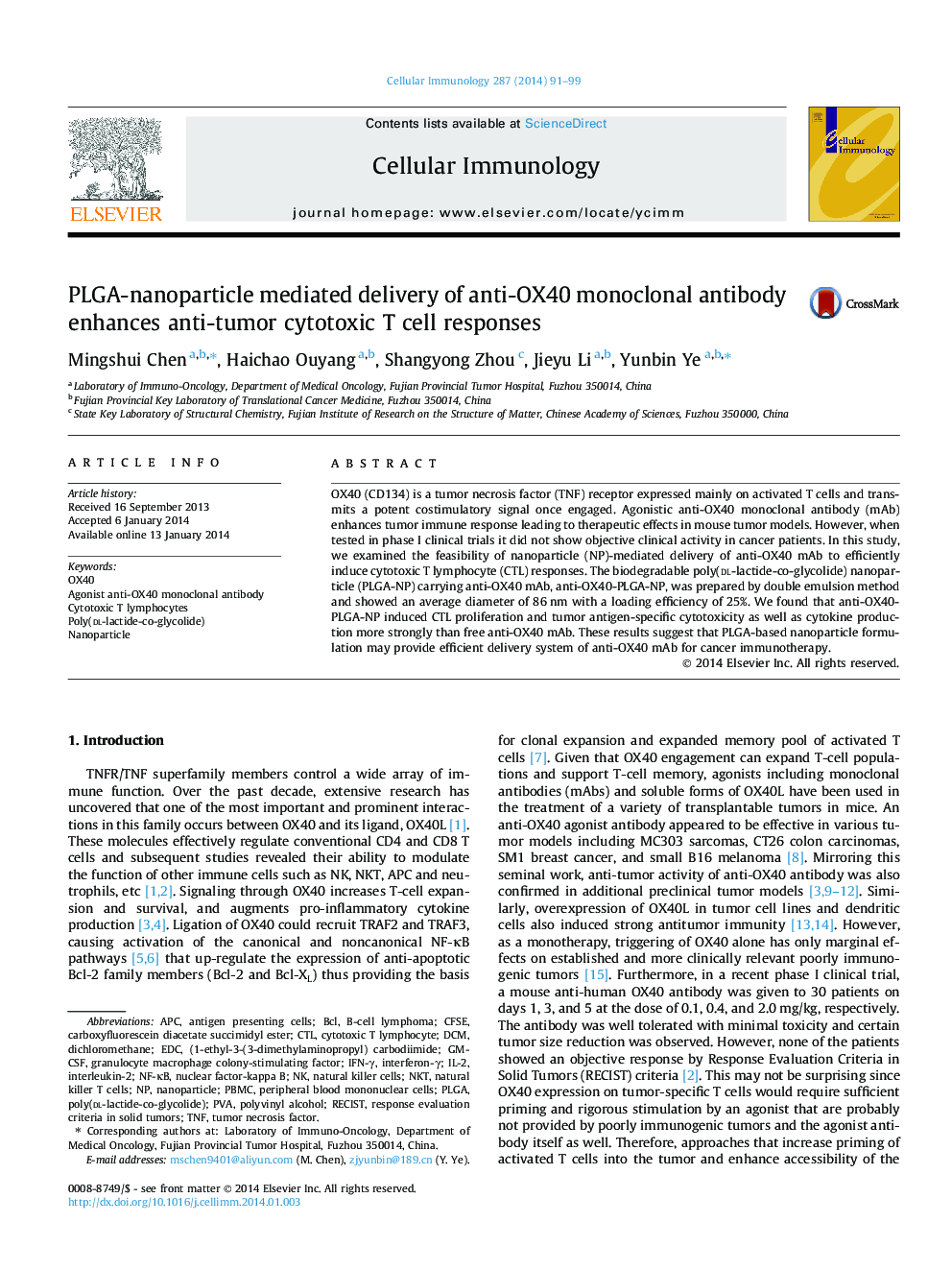| Article ID | Journal | Published Year | Pages | File Type |
|---|---|---|---|---|
| 2167024 | Cellular Immunology | 2014 | 9 Pages |
•OX40 agonist antibody enhances anti-tumor immunity in mouse tumor models.•It has only marginal effects on more clinically relevant poorly immunogenic tumors.•Anti-OX40 mAb in PLGA-NP more effectively induces CTL proliferation and activation.•Anti-OX40-PLGA-NP produces more robust tumor antigen-specific CTL cytotoxic activity.•Thus, PLGA-NP-mediated delivery of anti-OX40 mAb enhances anti-tumor immune response.
OX40 (CD134) is a tumor necrosis factor (TNF) receptor expressed mainly on activated T cells and transmits a potent costimulatory signal once engaged. Agonistic anti-OX40 monoclonal antibody (mAb) enhances tumor immune response leading to therapeutic effects in mouse tumor models. However, when tested in phase I clinical trials it did not show objective clinical activity in cancer patients. In this study, we examined the feasibility of nanoparticle (NP)-mediated delivery of anti-OX40 mAb to efficiently induce cytotoxic T lymphocyte (CTL) responses. The biodegradable poly(dl-lactide-co-glycolide) nanoparticle (PLGA-NP) carrying anti-OX40 mAb, anti-OX40-PLGA-NP, was prepared by double emulsion method and showed an average diameter of 86 nm with a loading efficiency of 25%. We found that anti-OX40-PLGA-NP induced CTL proliferation and tumor antigen-specific cytotoxicity as well as cytokine production more strongly than free anti-OX40 mAb. These results suggest that PLGA-based nanoparticle formulation may provide efficient delivery system of anti-OX40 mAb for cancer immunotherapy.
